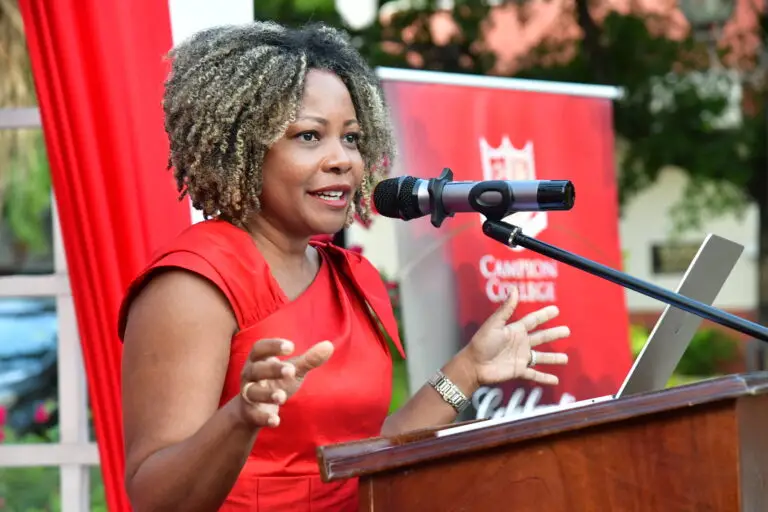KINGSTON, Jamaica – Ensuring educational equity in Jamaica’s secondary schools requires urgent attention to the underlying challenges students face, including access to basic needs such as food, says Minister of Education, Youth, Skills, and Information, Senator Dana Morris Dixon.
“Food insecurity is a significant barrier to learning. Without proper nutrition, students cannot concentrate, and their cognitive abilities suffer,” said Morris Dixon during her keynote at the Archbishop Samuel Carter Lecture on January 9 at Campion College. The lecture, titled ‘Pursuit of Excellence and Equity in Jamaica’s Secondary Education System,’ focused on the vital need for balanced approaches in the educational sector.
The minister emphasized that brain development in early childhood is deeply tied to nutrition, impacting both concentration and behavior. Poor nutrition, she explained, directly results in diminished learning outcomes, leaving children at a disadvantage from the outset.
Each year, the government allocates approximately $8 billion to school feeding programs, benefiting over 30% of the nation’s students. However, Morris Dixon stressed that more needs to be done to ensure no child faces the dual struggle of hunger and learning.
“There are still many children outside the PATH program who live in food insecure households, and this gap in support is concerning,” she noted. The minister expressed her full support for the ongoing review of the Programme of Advancement Through Health and Education (PATH), aimed at improving enrollment and criteria for assistance.
Morris Dixon highlighted the importance of financial and educational support, such as bursaries and transportation stipends, in reducing school dropout rates. Proactive measures, she stated, can ensure that students from economically disadvantaged backgrounds have equal access to education. The introduction of inclusive practices for students with physical, learning, or behavioral challenges also plays a crucial role in helping every student realize their full potential in the classroom.
“By removing financial barriers and reducing truancy, we give students the chance to focus on their education and break the cycle of poverty,” Morris Dixon added.
Excellence and equity, according to the minister, are not only foundational to the education system but are also critical to Jamaica’s long-term growth and competitiveness. Excellence ensures that schools foster innovation, intellectual development, and prepare students for global success. Meanwhile, equity guarantees that no child, regardless of background, is denied opportunities for success.
“The gap between access and achievement is a serious issue,” Morris Dixon concluded, highlighting the country’s educational crisis. “It’s not enough to just have access to education; we need to ensure that every child receives the support and opportunities necessary to thrive academically and later in life.”
Her comments underscored that true equity in education means more than identical outcomes; it is about providing each student with the resources, support, and opportunities they need to succeed.






